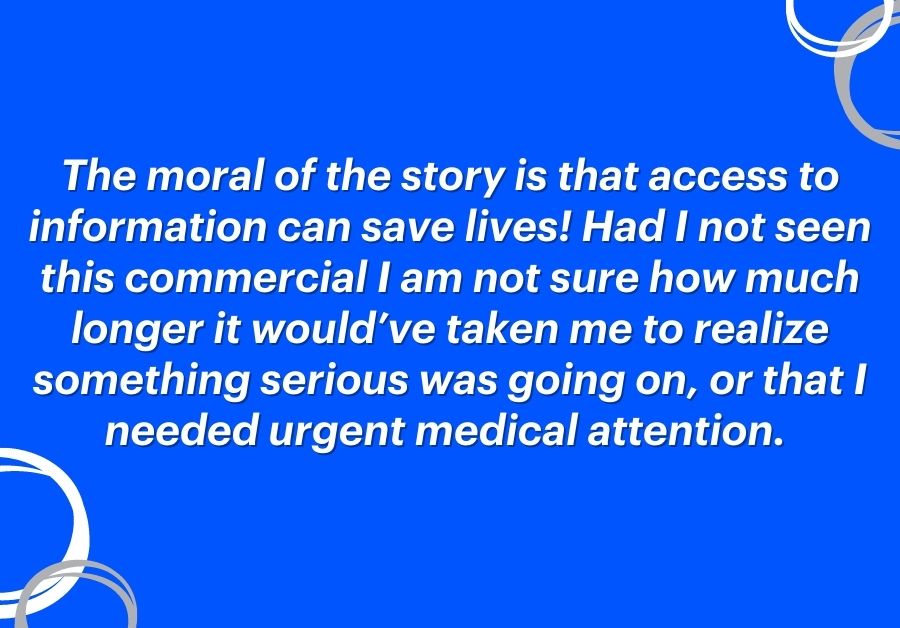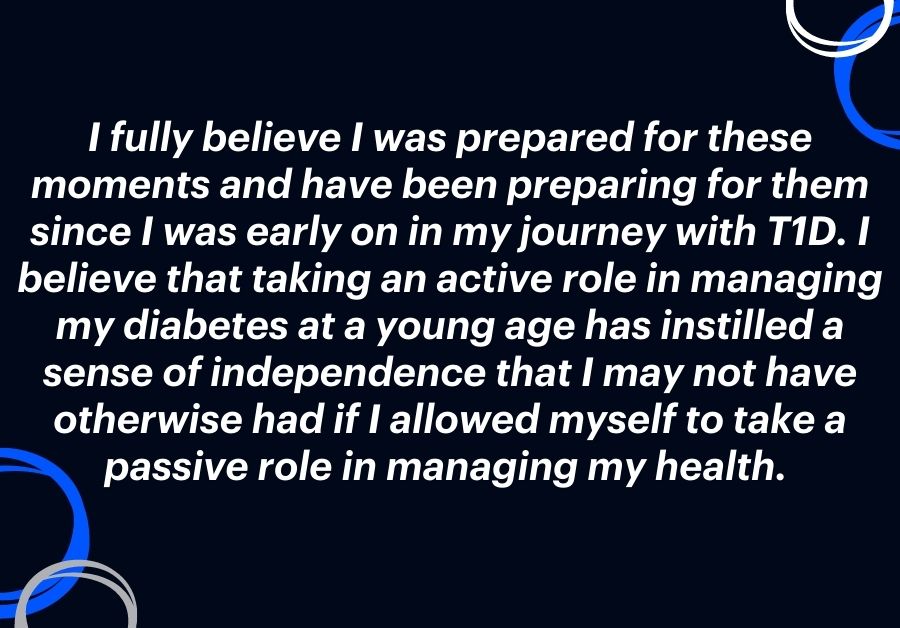Meet T1D Champion, Michael!
Meet T1D Champion, Michael! Michael was diagnosed with type 1 diabetes (T1D) at 12 years old and currently attends law school in Brooklyn, NY. Michael shared the importance of knowing the warning signs of T1D and how he manages his T1D care while navigating law school.
- What do you wish people knew about living with T1D?
I believe that for some time, I’ve wrestled with how to feel about the general lack of knowledge people have about diabetes. It would be misguided to blame those who are not affected by diabetes for their lack of knowledge on the illness. Diabetes is recognizable as a name but there is quite a bit more info that lies below the surface people don’t readily have access to.

Shortly before I was diagnosed, I can’t remember if I had ever questioned what diabetes was, how it affects people, or how it is managed. My introduction to diabetes was from a commercial I saw when I was 12 years old. The commercial was of the basketball star Ray Allen speaking on the signs and symptoms of T1D and how it affected his son, who lives with the disease. Luckily enough, I saw this commercial while I was dealing with the same exact warning signs that Mr. Allen spoke of, and I was able to convince my parents to take me to a doctor to get checked. This whole journey began based on a ~ 1-minute commercial that described every odd thing I was going through.

In the most general sense, I wish that people were aware of how serious diabetes can become and what to do if they find themselves in situations where a loved one, close friend, or even themselves are showing signs of extremely low or high blood sugar. I wish for people to understand that diabetes is far more than just an illness associated with your diet and the amount of sugar you intake, but that your moods can be affected, your physical condition can be affected, your ability to focus can be affected, and your immune system does not function the same as a person without T1D; note that these are just a few specific underlying effects of T1D in a long list of possibilities. I believe the more knowledge people have the more they will be able to do for others with T1D.
- How have JDRF research advancements affected your life?
I believe JDRF research advancements have tremendously impacted my life and I am very grateful that a new generation of people with T1D has access to the fruits of JDRF-supported research. I am old enough to remember what life was like before technology like Continuous Glucose Monitors (CGM) or flex pens existed. When I was first diagnosed 12 years ago, I tracked my blood sugar by pricking my fingers four or more times a day, which left my fingers scarred, and my insulin came in vials and with syringes. I was forced to always carry around heaps of items for blood sugar monitoring and even became known for the medium-sized medical bag I used to store my things! (My grandmother always made sure I had a cool Nike bag for my supplies, so I didn’t mind being known for always having an extra bag with me at all times.) What’s more, is that none of my diabetes products were discrete in the slightest so I would always have to make an entire spread of medical products whenever I needed to use them.
Aside from my day-to-day management, when I would visit the doctor, no application was available that would allow me to send information that my doctors could immediately look at to see trends in my health. I had to print out physical papers and either bring them to my appointments or have my doctors take my meter, hook it up to a computer and print the large stack of papers out themselves.
Technological advancements in care such as CGMs, flex pens, app connectivity, and smaller, more discrete needles have made my care so much more streamlined. I often forget how much of a task it was to manage my diabetes before these advancements, but I am eternally grateful I have been able to see both sides of diabetes care and eagerly look forward to the advancements that are on the horizon.
- What is your experience managing T1D while navigating the demands of law school?
I believe law school has been stressful regarding my diabetes in more ways than one, namely the new distance between myself and my endocrinologist and the new amount of stress that has been added on top of my health management.
Currently, I live in New York and my endocrinologist is in Fort Worth, Texas which has made it difficult to set up appointments and, due to my uncertain schedule, hard to plan travel back home for them. In the past, I believe I took for granted the proximity and ease with which I could see my doctor who has been working with me for years. Secondly, law school has demanded a significant amount of time and focus so even though I seldom do have hiccups in my care, any issues seem to always occur at the most inopportune time possible.

Regarding the general stress of law school, I believe it has reinforced my priority system and what comes first in my life. The answer will always be my health. No matter how many times I will be reminded of this, it is a lesson I am happy to revisit. It is very easy to get caught up in what’s going on in your personal, work, or academic life and this will always be true. From the early days of when I was first diagnosed, to when I went away from home for college, and now in law school; I have been able to see challenges appear in all three of these areas. In every situation, regardless of how many times you may falter in your care or need a reminder, know that stepping back and prioritizing your well-being is not only important but mandatory for a healthy life, whether you have T1D or not.